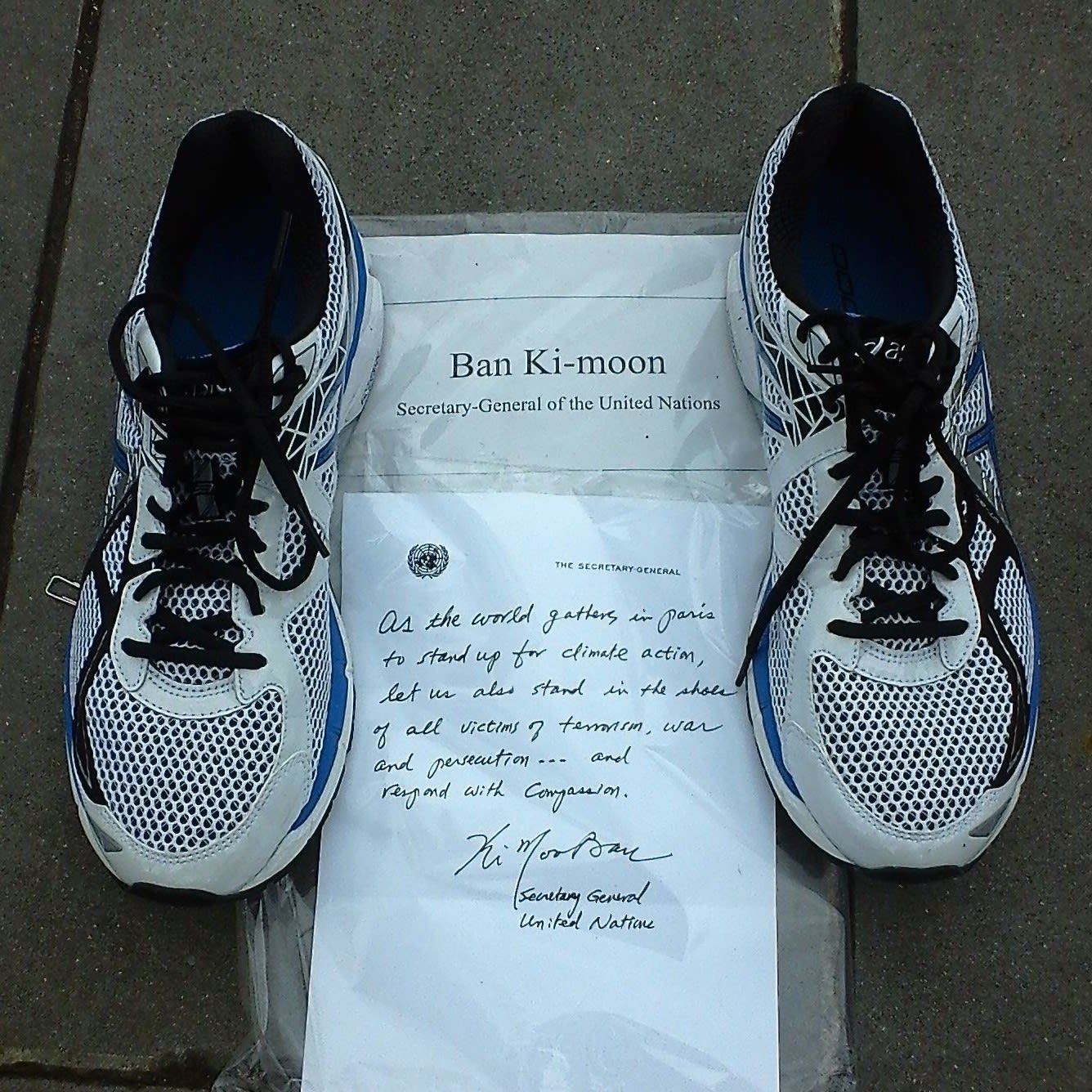
Read the Charter of Independence here.

By NARDINE GROCH
About 22,000 pairs of shoes filled one of Paris’s most important squares, Place de la Republique, on the eve of the arrival of 150 world leaders from around the world for the UN climate change talks.
Despite a public ban on demonstrations and marches because of security concerns, climate activists still took to the streets in their thousands last Sunday, deciding to find alternative and creative ways to shout out their voices on climate action.
Event organiser Ricken Patel, the founder and CEO of community movement organisation AVAAZ, said people were heartbroken when they found out they couldn’t march in Paris.
“We wanted to respect the police’s concerns so we thought if they send their shoes and their shoes marched for them, that could be an alternative because shoes are actually quite personal,” he said.
“And it was a beautiful day, these shoes were an eloquent demonstration of their determination to be heard.”

The thousands of shoes were collected by volunteers and were being shipped to charity organisations for homeless people throughout Paris.
Volunteer Anne Andreeff said the number of people handing in shoes all day had been overwhelming.
“The shoes are here because they represent the very souls of the thousands of people that would have marched," she said.
“There were many pairs of children’s shoes as well all lining the streets and a pair of shoes was also sent on behalf of Ban Ki-moon, the UN Secretary-General."
Other peaceful events were also planned, including a human chain, made up of thousands of people, which spanned the route of the global climate march.

Australian farmers Sally and Rob McCreath from the Darling Basin in Queensland travelled from Australia to take part and wore striking kangaroo costumes to highlight the Australian contribution.
“It's a shame the march was cancelled but we are still here, we wanted to stand out from the crowd to show that Australians are really serious about climate change," Ms McCreath said.
“We have noticed that droughts are a lot more regular and harder each time they come and the same with our summers they are getting much longer with more hot spells. When it is drier we just don’t have the moisture to plant crops."
The couple helped rally community support to stop an open-cut coal mine development from going ahead in their local area in 2008.
Mr McCreath said that it took 4½ years, but they won the battle against the mine.
"I think it really shows what community action can achieve, even at the local level," he said.
Sydney investment worker Jillian Reid came with her daughter and husband with a homemade sign protesting against the massive Carmichael mine project in central Queensland and its potential impacts on the Great Barrier Reef and indigenous land rights.
She said people's presence in the streets of Paris still had an impact even though it was disappointing they couldn’t march.

“We came for the march but it is still important to have people on the streets today to be putting pressure on governments to stop these sorts of developments," she said.
“We certainty do not need new coal mines in Australia.
“The people are waiting, the time is now, they need to get this right in the next two weeks," Ms Reid said.
Yet, some activists were upset that they could not leave the square and decided to try and rally others to take up the march by shouting: “Hear our voices, we are here.”
Within an hour police began to fire tear gas and clashed with activists, then finally blockading the square and arresting several people.
It was the first test of the French authorities’ determination to ban public demonstrations after the Paris attacks.
Climate activists from around the globe have continued to plan events all over the city for the two weeks of the UN conference to continue to urge world leaders to agree to deep emissions cuts so the world will not exceed a 2C temperature rise.